Why Hillary and Bernie both won and lost in Nevada
- Published
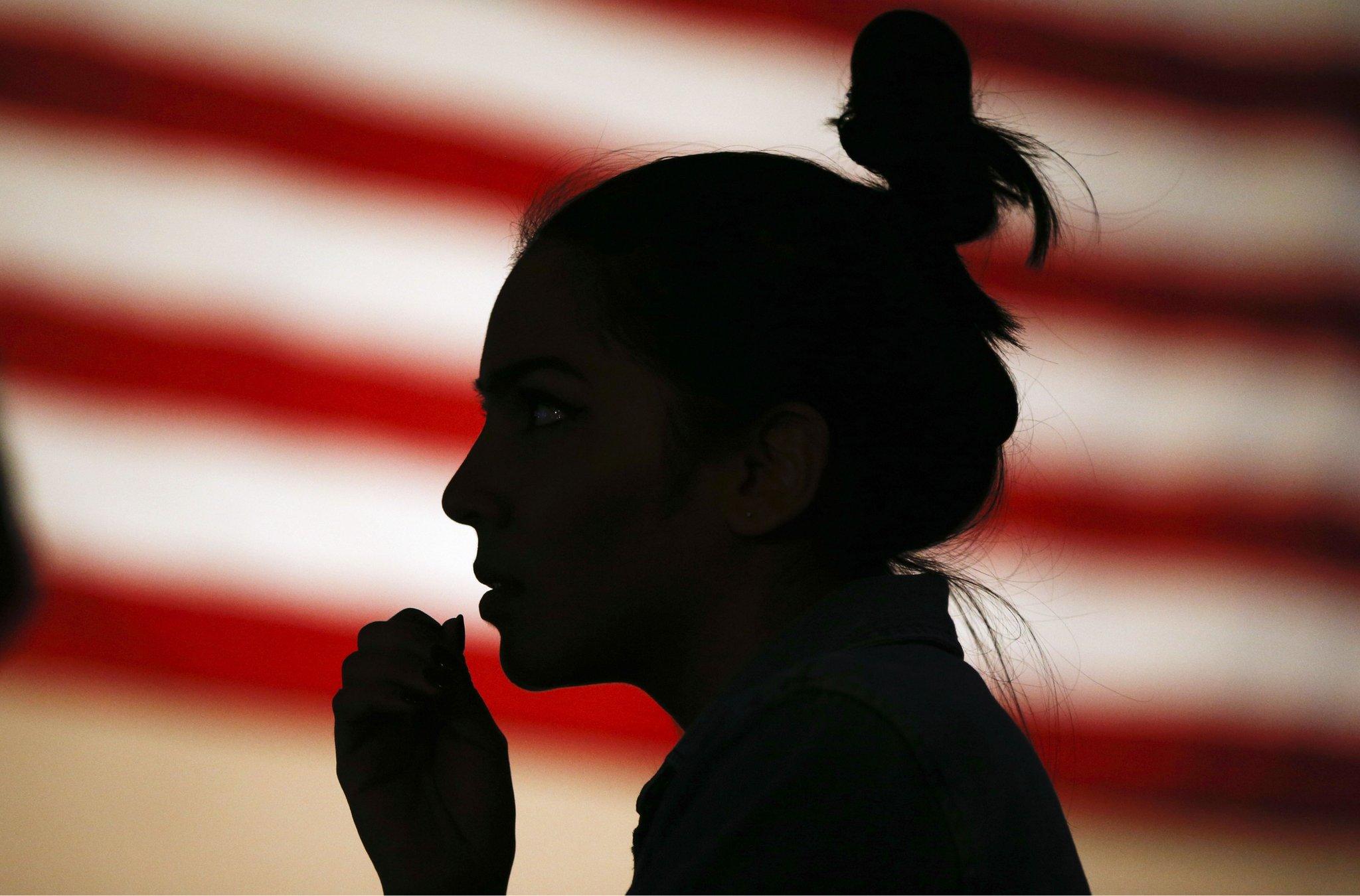
Hillary Clinton won more votes and more delegates at the Nevada caucuses, but that doesn't mean that Bernie Sanders was a loser.
The Clinton firewall held. Or did it?
While the former secretary of state notched her most convincing victory of this early election season, that's not saying much at all. It certainly wasn't the dominating performance that her campaign had hoped would reveal her early struggles against the Vermont senator were a regional aberration.
Instead both candidates emerge from the "First in the West" caucuses feeling like a bit of a winner and a bit of a loser.
Why she's a winner:
She won, of course. More than that, however, she can finally turn the page from the solid drubbing she received just over a week ago in New Hampshire.
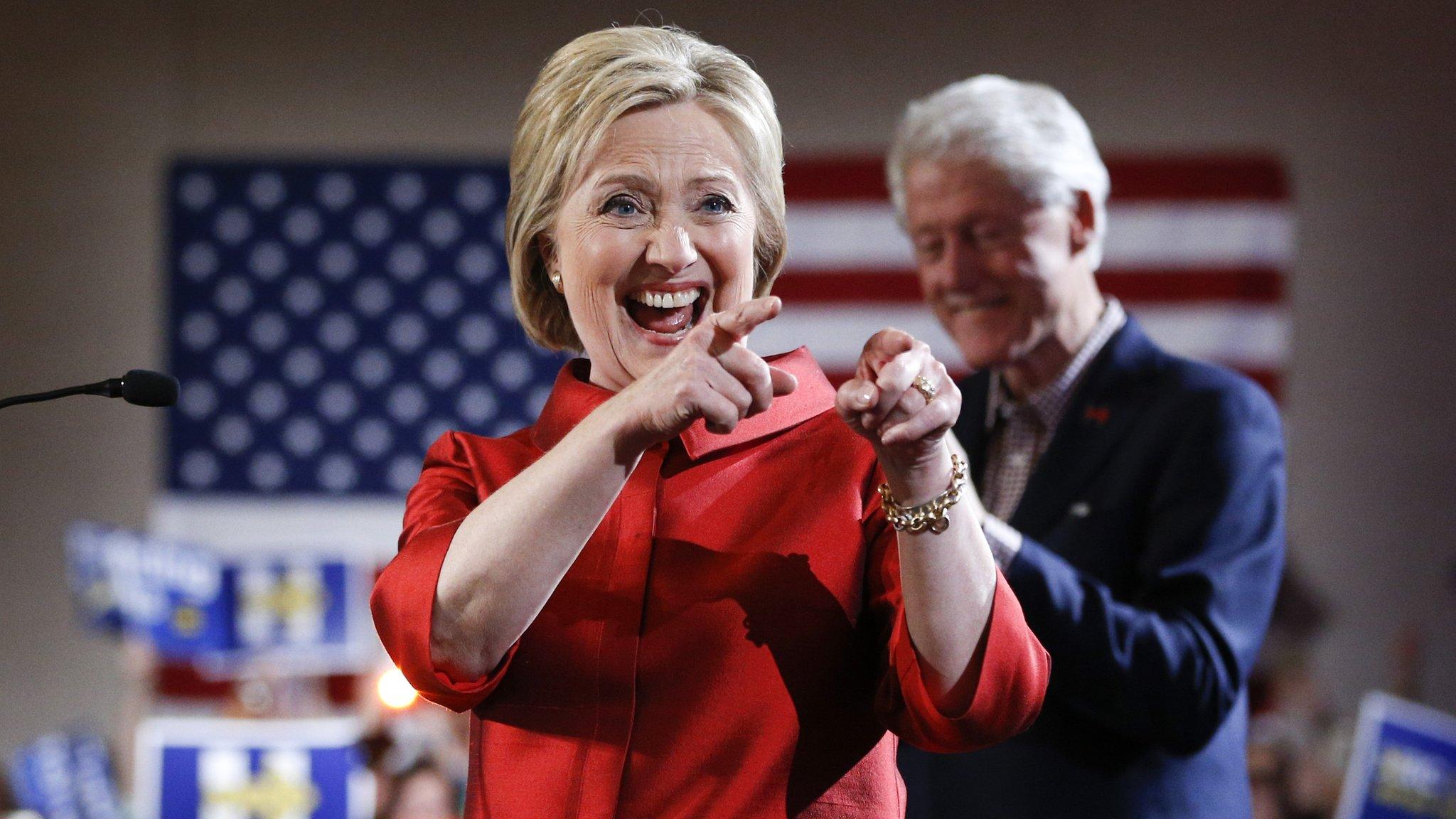
Even though her winning margin looks to only be around five points, she finally was able to give an honest-to-goodness victory speech and head to the South Carolina primary next week with a bit of momentum.
She also did extremely well in Las Vegas and its environs, racking up a double-digit victory in a part of the state that has the most minority voters. Hotel workers turned out for her in droves in the downtown casino sites, where the common refrain was that she was the candidate who was most electable and most accomplished.
That's her main selling point, and Nevada voters were buying it.

Why she's a loser:
A caucus entrance poll conducted by ABC News, external shows that Mrs Clinton was trailing among voters under age 45 and younger by a massive 55-point margin.
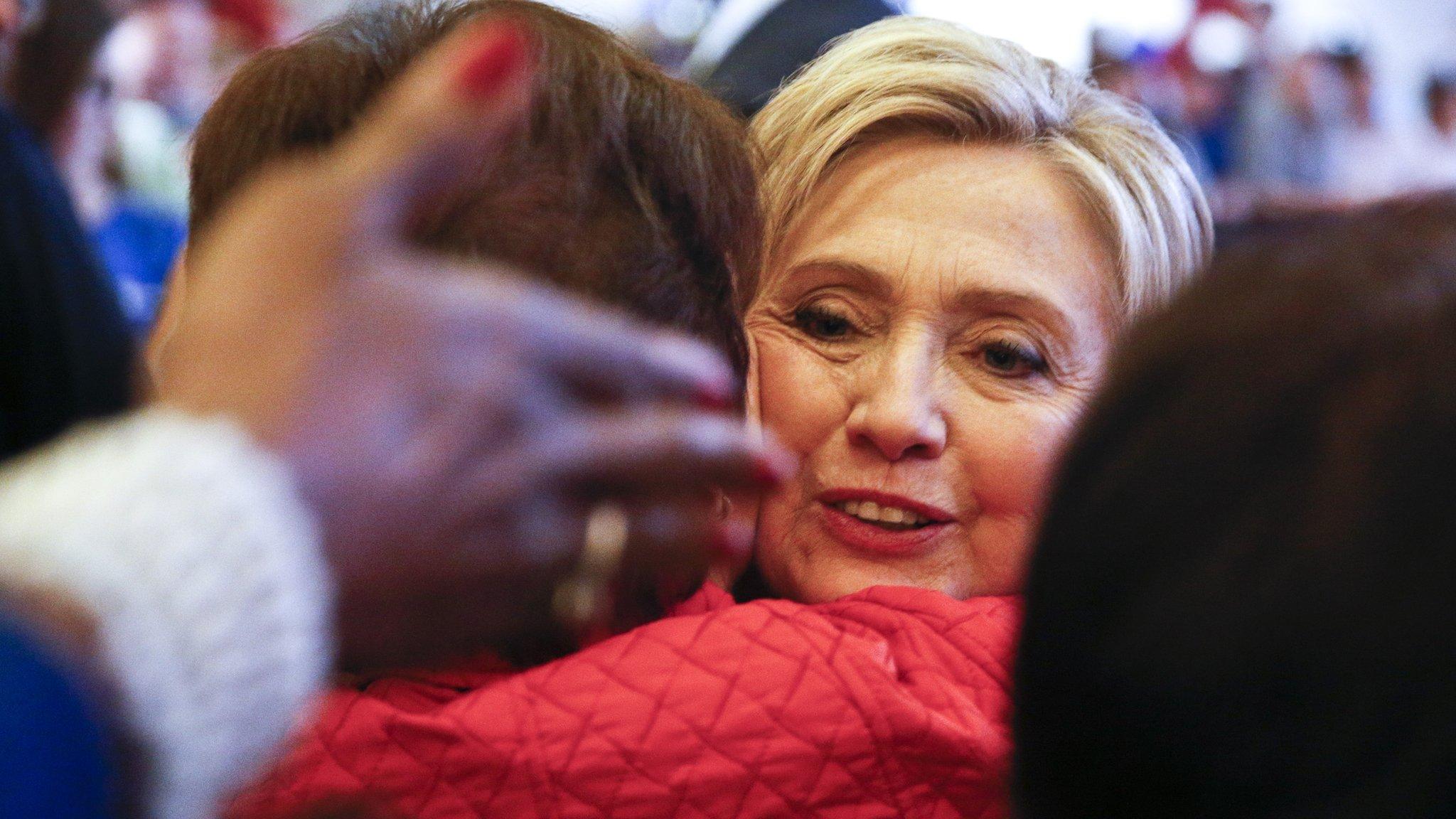
Even if that number turns out to be a bit inflated, it's still a disturbing sign that her support in this demographic is still flagging. If she ends up winning the nomination, she's going to need the youth vote, which is pivotal in a handful of key swing states.
Just a few months ago the Clinton campaign hoped that Nevada would deliver a knockout blow to the upstart Sanders campaign. Her team has been organising this state for over a year. She hired political operatives who were intimately familiar with the state, and her national campaign manager, Robby Mook, was the mastermind behind her surprise win there over Obama in 2008.
And yet with all these organisational advantages, she still only eked out a narrow win.

Why he's a winner:
Very early in his concession speech, Mr Sanders emphasised the silver lining in Saturday's result.
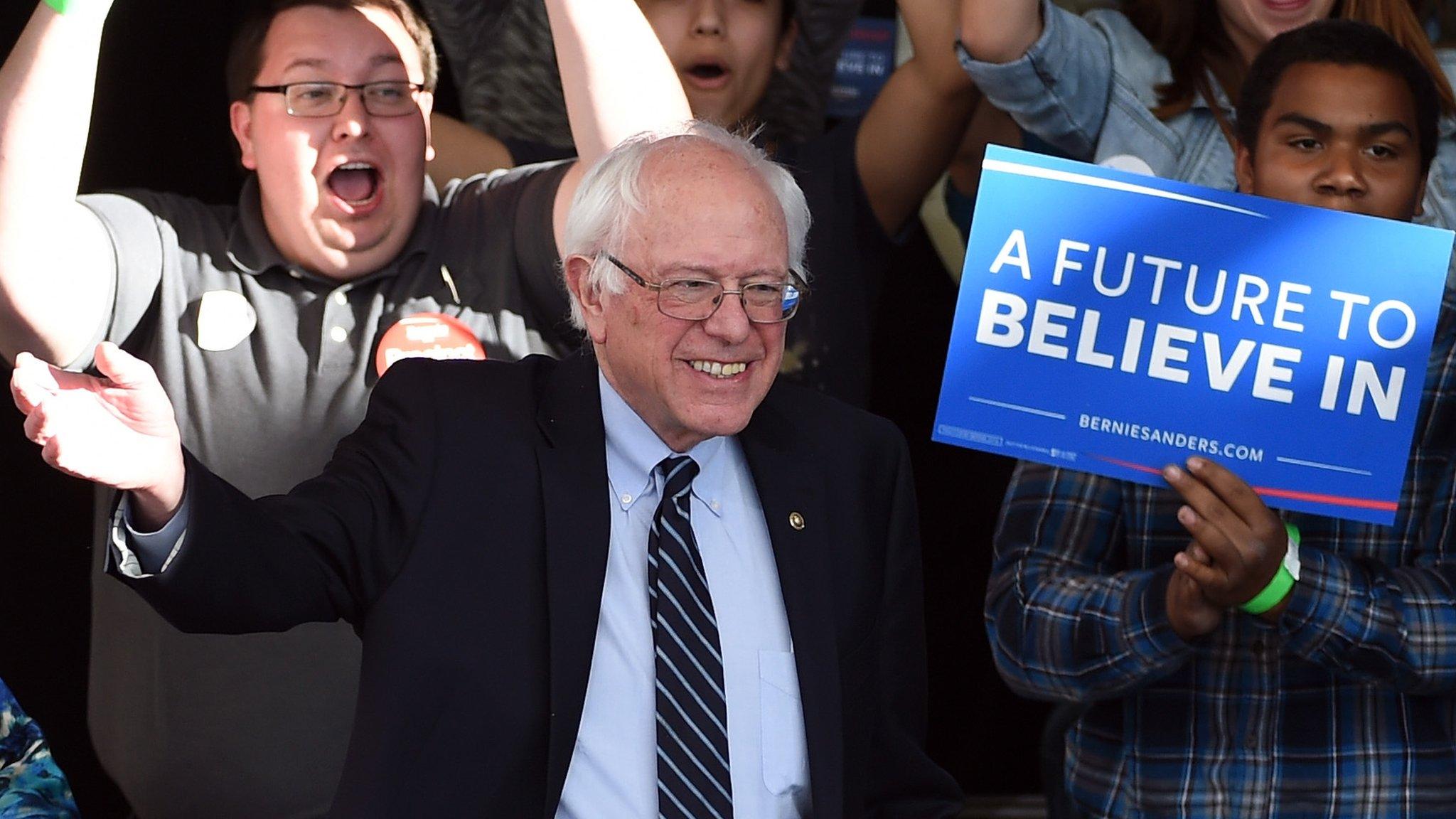
"Five weeks ago, we were 25 points behind in the polls, and we have made some real progress," he said. A five-point loss in an ethnically diverse state that mirrors many of the contests to come should give the Sanders faithful some hope that he'll be competitive in the slate of southern and western primaries to come in the next few weeks.
Thanks to his prodigious grassroots fundraising, he has the resources to mount a national campaign against Mrs Clinton - a prospect that was unlikely at best when his presidential journey began last summer.
"In a short while I'll be on a plane to South Carolina, and then we're going to be competing in 11 states all across this country on Super Tuesday," Sanders said in his speech. "And I believe that on Super Tuesday we have got an excellent chance to win many of those states."
The Nevada results show he may be right.

Why he's a loser:
A moral victory is just defeat by another name. Mr Sanders had an opportunity to pull out a win in Nevada and put the Clinton campaign on the ropes, and he failed.
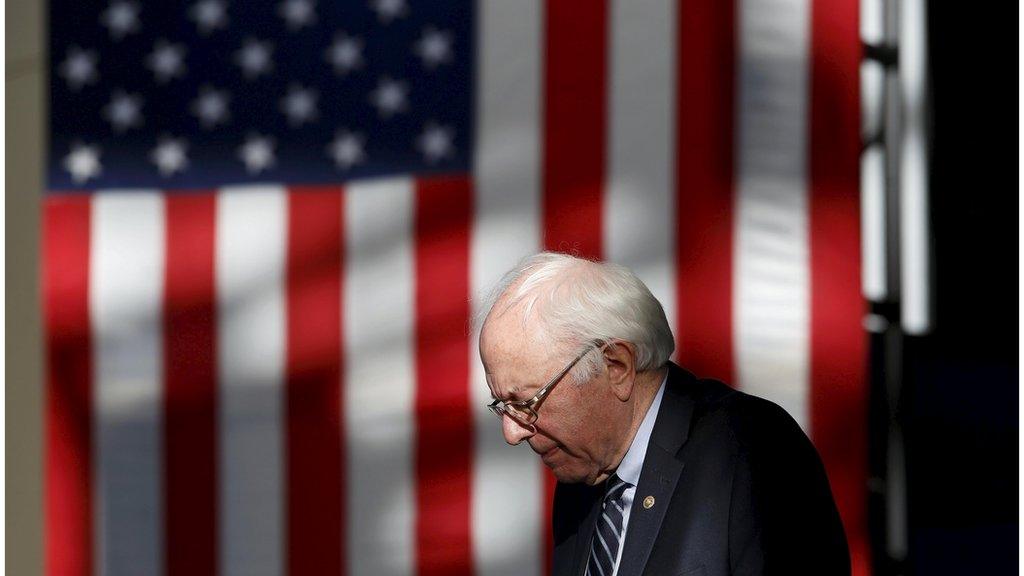
Although his campaign is no longer a long-shot, the senator is still an underdog who needs to take advantage of every opportunity that presents itself.
Instead he now travels to South Carolina, where he's struggled to connect with the majority-black Democratic primary electorate. Victory there will present a daunting challenge, and now it will be the Clinton campaign looking to start a win streak.
A key part of the Sanders narrative has been that he's engaging new voters and will fashion a revolutionary movement that can drastically change politics in the US. In Nevada - as in New Hampshire and Iowa - however, voter turnout was down over 2008 levels.
The promised tidal wave of new voter turnout just hasn't materialised yet, and it could be Sanders' presidential hopes that get swept out to sea.